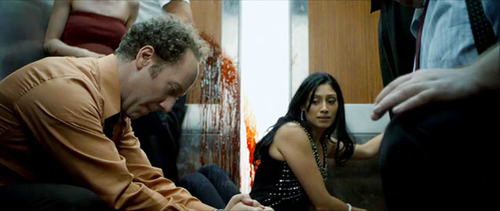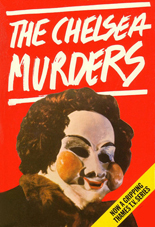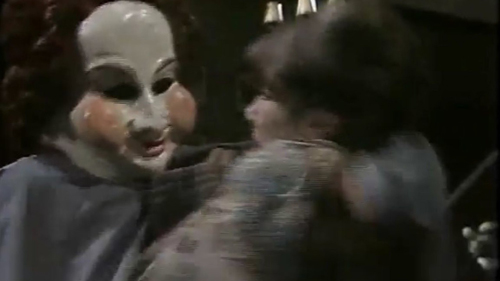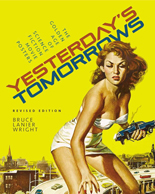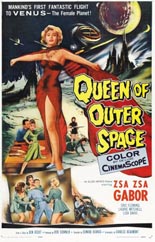
 A group of people step onto an elevator; no matter the floor buttons pushed, most won’t land on their desired destination. The M. Night Shyamalan-produced Devil, right? Well, yes, but also Elevator, two years later. Whereas supernatural forces were to blame in Devil, the indie Elevator boasts something even more evil: mankind.
A group of people step onto an elevator; no matter the floor buttons pushed, most won’t land on their desired destination. The M. Night Shyamalan-produced Devil, right? Well, yes, but also Elevator, two years later. Whereas supernatural forces were to blame in Devil, the indie Elevator boasts something even more evil: mankind.
Going up in a metal box to a corporate fundraising party are nine people, including:
• the CEO (John Getz, Blood Simple) and his “evil little bitch” granddaughter;
• a company mover-shaker (Christopher Backus, Rogue Hostage) and his newswoman fiancée (Tehmina Sunny, Children of Men);
• a less-successful employee (Devin Ratray, Home Alone), presumably because he’s obese;
• a gorgeous pregnant woman (Anita Briem, 2008’s Journey to the Center of the Earth);
• a claustrophobic comedian (Joey Slotnick, Twister), who’s the night’s last-minute hired entertainment;
• a security guard (Waleed Zuaiter, London Has Fallen);
• and a longtime investor (Shirley Knight, Grandma’s Boy).
Oh, and one of them is hiding a bomb that will kill anyone within a 5-meter range. (Is that bad? I don’t know metrics.)
I’m a sucker for small-scale, single-location movies, and Elevator succeeds more often than not. It builds a solid batch of suspense that while never boils over, sustains itself until Norwegian director Stig Svendsen loosens his grip to allow you to breathe.
The identity is the bomber is just one aspect of the suspense; defusing the device is another. While someone like Alfred Hitchcock would’ve had a field day with Marc Rosenberg’s script, Svendsen does a fine job with what looks to be very little money. —Rod Lott

